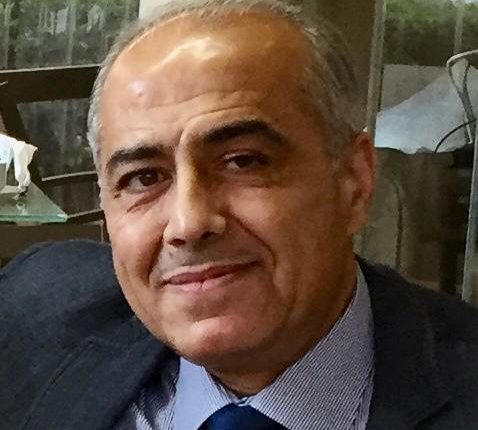THE LAST SHOT IN THE HEAD OF THE COUNTRY
By General Monzer El Ayoubi
Translation: Pierre A. Sarkis

The statement of the Minister of Interior and Municipalities in the caretaker government Brigadier General Mohamed Fahmy, on 18/4/2021, was not absolutely surrealist, although it was remarkable in timing and content. At the time, it was announced that active and sleepy terrorist cells in the country were being placed under the microscope and tight scrutiny of the security services, warning from a breakdown of the security situation as a result of the deteriorating economic situation.
While some considered what he stated a motivation for the political parties to speed up the formation of the Hariri government, perhaps based on the Nicolo Machiavelli’s hypothesis of “the end justifies the means”, his words were taken in a back-and-forth exchange context by the public, politicians and officials. Questions and expectations seemed legitimate: first, because of the credibility and validity of the source; and second, because of the impact of the frequent and rising violent crimes, and the growing fear with some panic involved from security events, internal tensions and an expected breakdown.
Alternatively, and as weeks passed with the Prime Minister-Designate declining to form a government, several bloody incidents occurred with its locations and scale spread over different Lebanese areas for different reasons. Noteworthy was the appearance of light and medium weapons in some villages and towns, from RPG Launchers to heavy 12.7mm machine guns, in addition to armed clashes between the inhabitants of neighborhoods and communities reminiscent in its gravity of scenes of the civil war, reviving and igniting sectarian and religious strife. The igniting detonators or bombings were mutual killing crimes at its roots chronic hostilities linked to revenge. The index of continuous and successive crimes of robbery, theft and looting increased, and diversity in the pattern of luring victims was recorded, not the last of which was “ambushing a mannequin” in the middle of the street at night, forcing the driver to stop for fear of hitting a thought-to-be human being, allowing the gang members to swoop and steal the car and rob its passengers of their money.
On the other hand, since the October 17 revolution, and according to intelligence reports, the military leadership of the Lebanese Army sensed the seriousness of the security situation internally and at the borders, for it raised the level of alert and readiness to measure No. 3, which made perseverance essential, as well as, the troop exhaustion factor and the attrition of the security and operational efforts. In parallel with the intensity and diversity of tasks, part of them beyond the competence of the army, its intervention is supposed to be exceptional in terms of support and sustainment as requested by the concerned security services, such as, riot control operations and maintaining the security of demonstrations and gatherings, as well as, guarding and protecting official and important institutions, etc.
Simultaneously, if it is inevitable to reproduce suffering, the army is genetically from the womb of the people, and maintaining the morale of the army is very difficult not because of the weakness of the national commitment, or the reluctance of sacrifice and loyalty, but as a compelling effect of the erosion of the value of salaries and allocations, as well as, the low standard of medical services and the scarcity of medical supplies and rationing in some types of food and transportation expenses. In this respect, the foreign visits of Army Commander General Joseph Aoun resulted in acceptable and timid access to medical, food and material assistance from brotherly and friendly countries, and formed an important, lest reluctant, tributary to slow down suffering and not consolidate remedies. And if the crime of desertions from the army is in common with the armies of other countries, it exceeded our usual numbers and worsened, and the bleeding in the numbers is due to the suspension of volunteering, and the demobilization of the legal age imposed the replacement of quantity with quality, so the focus was on the training and arming in order to compensate for the lack in numbers and equipment so that it does not affect the ability and efficiency of the fighting units.
Next, certainly the continuing instability of political, social, living and economic conditions associated with the frequent multi-pronged political drubbing, diverse sectarianism and its contradicting external loyalties, in conjunction with the suffering of the Lebanese, as a result of the waste ailment and the deprivation of medicine, food, and fuel, whether because of smuggling, storage or monopoly, will increase the possibility of security and sabotage breaches on the Lebanese arena. This will raise the level of internal tensions towards a new phase of more violent and organized popular protests with the inevitability of bloody clashes with security forces, especially with the approaching parliamentary and presidential elections in conjunction with the futile capacity, or the added will to the effective disruption of the formation of a new government so far.
In a related context, and against the backdrop of the climate of pacification and individual settlements in the region, in parallel with the indirect US-Iranian negotiations on Iran’s nuclear program, and the course of Arab normalization with the Zionist entity, as well as, other geopolitical factors, the enemy leadership is not simply observing the disintegration of the country, as it avoids committing any military lapse that might start a battle or slide towards a confrontation with Hizbollah. It will only activate its spying and agent network inside the country by carrying out assassinations or bombings, targeting those who guarantee additional resentment by neutralizing them, and thus, the armed breakdown feeding the raging flames.
Finally, the security situation is not at its best and the gravity and efficiency of targeting will increase in a two-folded manner: increasing the qualitative pressure on the military forces with the geographic expansion of the troubled areas, in order to distract or neutralize them; pushing towards more impoverishment, starvation and migration, so at the critical point, the total collapse will be the last shot in the head of the exhausted and wounded homeland.
Beirut, 07/09/2021
Scholar in Security and Strategic Affairs

